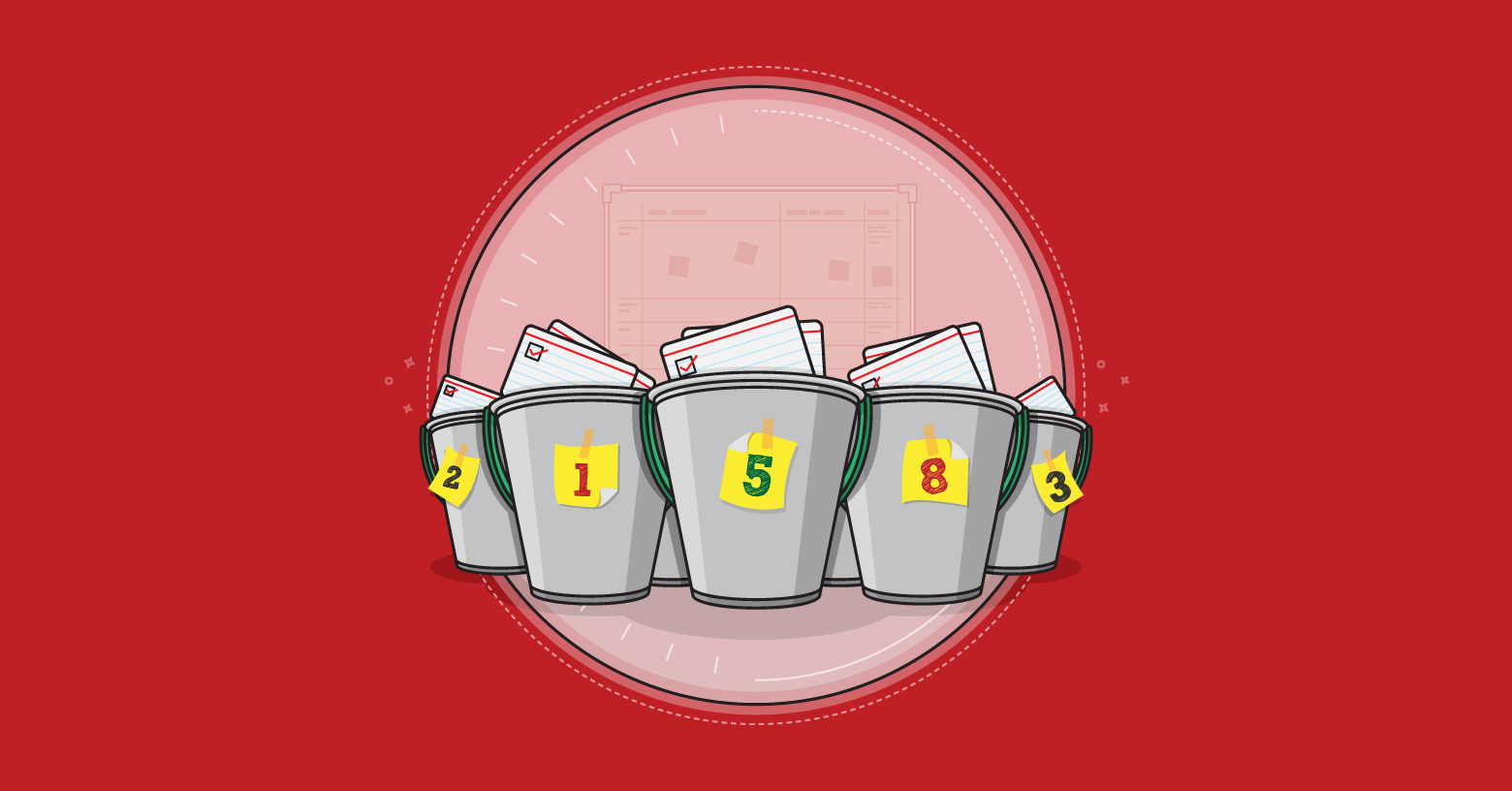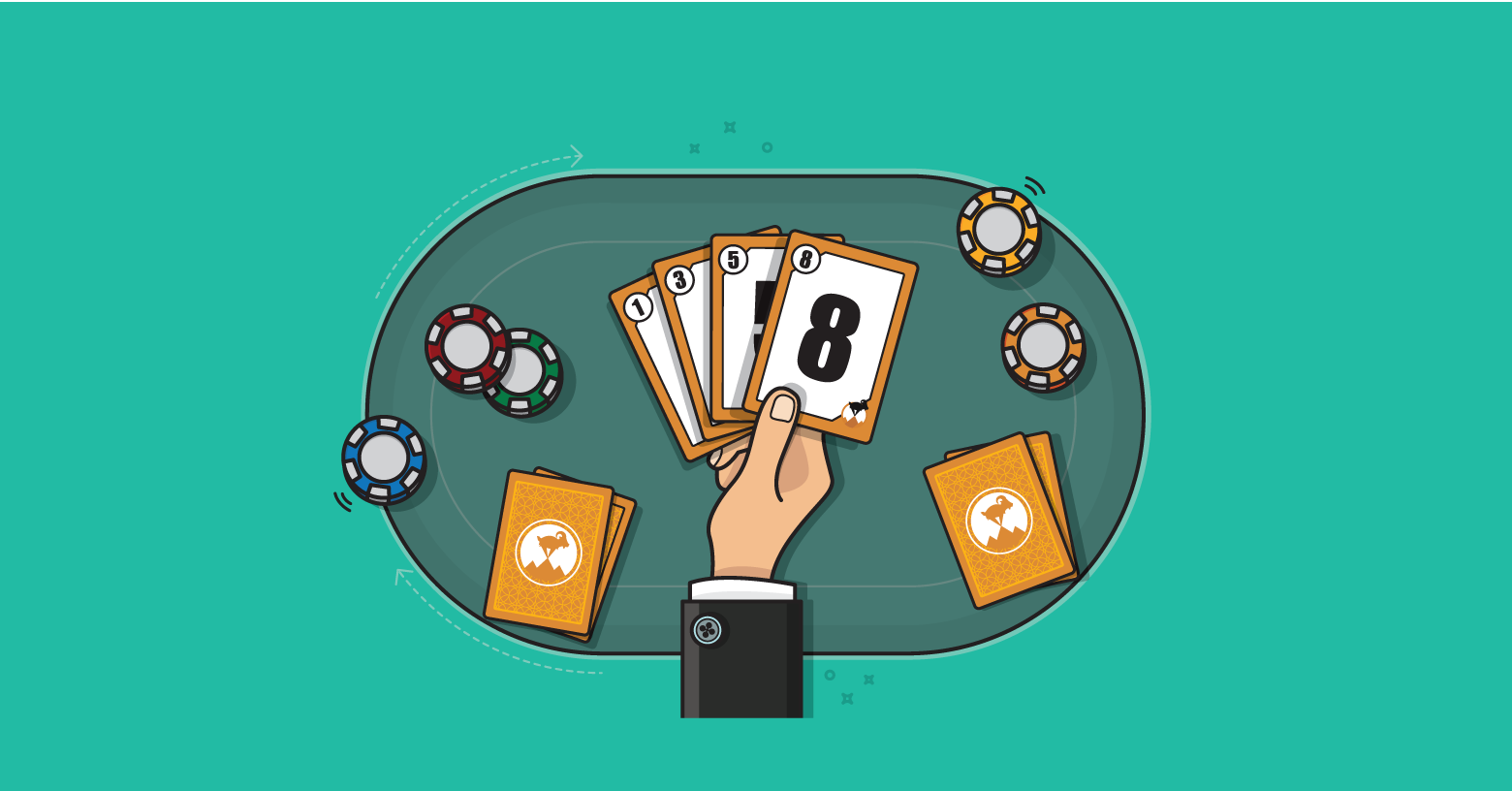Scrum Foundations Video Series
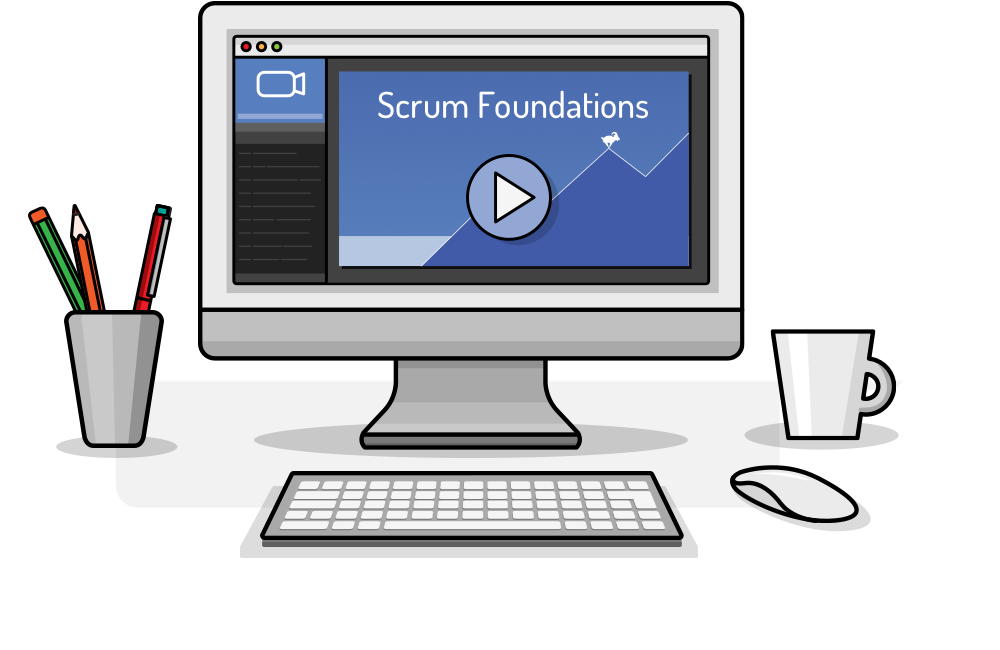
All the foundational knowledge of Scrum including: the framework, values, different roles, meetings, backlogs, and improving efficiency & quality.

Scrum Foundations Video Series
What is Planning Poker?
Planning Poker® is a consensus-based technique for agile estimating. It is a fun and engaging way for teams to apply relative estimates to planned work.
To start a poker planning session, the product owner or customer reads one of the desired user stories or describes a feature to the estimators.
Each estimator has a physical or virtual deck of cards. These Planning Poker cards display values like 1, 2, 3, 5, 8, 13, 20, 40 and 100 (the modified Fibonacci sequence). The values represent the number of story points, ideal days, or other units in which the team estimates.
The estimators discuss the feature, asking questions of the product owner as needed. When the feature has been fully discussed, each estimator privately selects one card to represent their estimate. The estimators then reveal all of their cards at the same time.
If all estimators all selected the same value, that becomes the estimate. If not, the estimators discuss their estimates. The high and low estimators, especially, should share their reasons. After further discussion, each estimator reselects an estimate card, and all cards are again revealed at the same time.
The team repeats the process until they achieve consensus on an estimate. If they lack enough information to agree on an estimate, the estimators can defer a particular item until those details can be acquired.
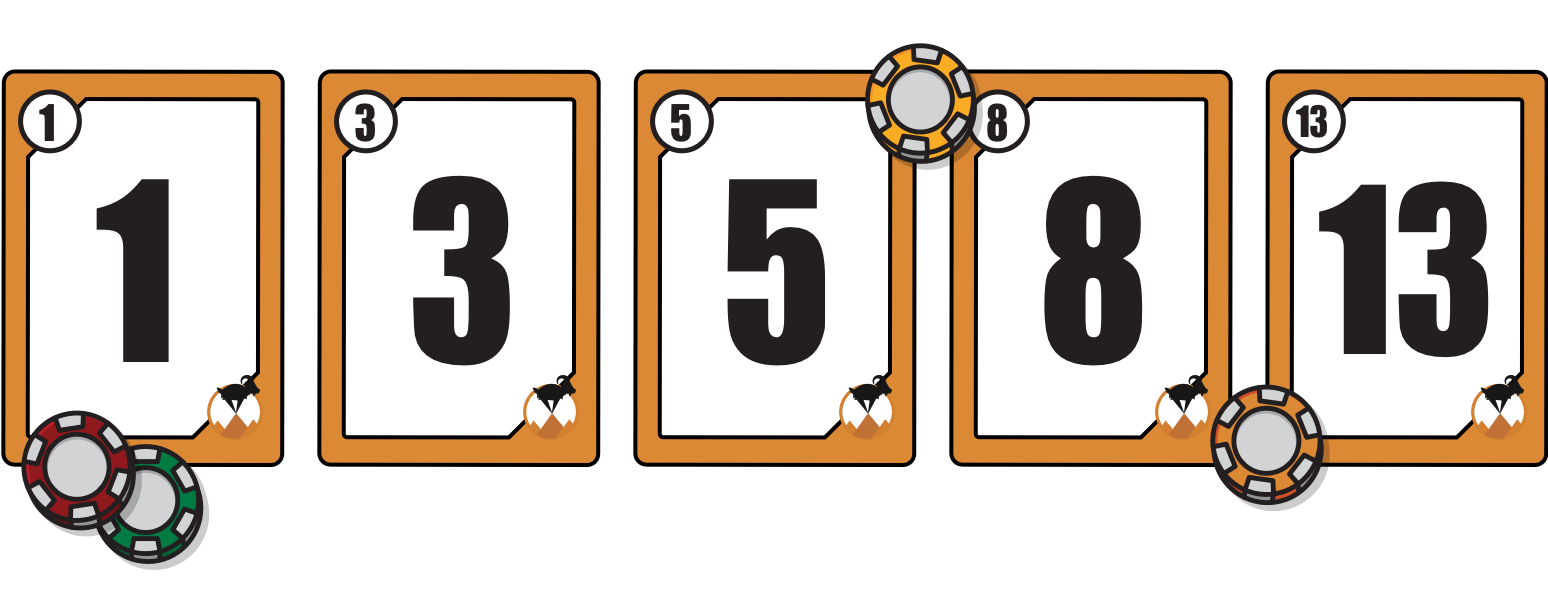
When do teams use Planning Poker?
Team can use planning poker anytime they need to estimate product backlog items.
Teams use Planning Poker when the initial product backlog is created. Most teams hold a story-writing workshop to write and estimate the initial product backlog. To understand the scope and size of a project, the whole team is encouraged to write user stories and create initial estimates of the work. The whole team includes the developers (team members), Scrum Master, and product owner.
Teams also use Planning Poker as new product backlog items are added. This activity, called product backlog refinement, typically happens about once per iteration.
Does Planning Poker work?
Absolutely. Teams estimating with Planning Poker consistently report that they arrive at more accurate estimates than with any technique they'd used before.
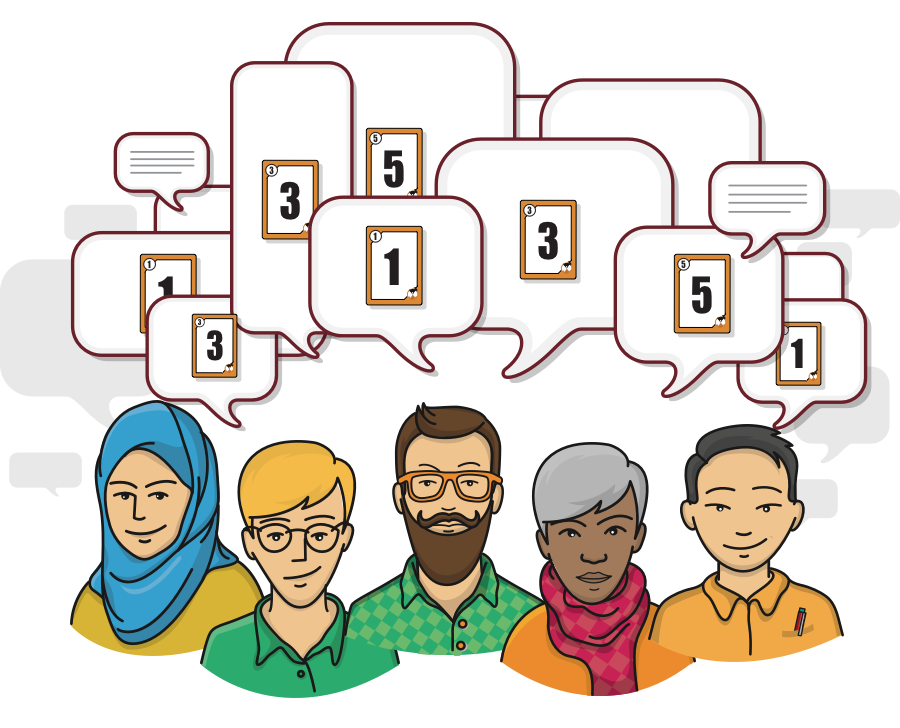
One reason Planning Poker leads to better estimates is because it brings together multiple expert opinions. Because these experts form a cross-functional team from all disciplines on a software project, they are better suited to the estimation task than anyone else.
After completing a thorough review of the literature on software estimation, Magne Jørgensen, Ph.D., of the Simula Research Lab concluded that “the people most competent in solving the task should estimate it.”
Second, a lively dialogue ensues during poker planning, and estimators are called upon by their peers to justify their estimates. Researchers have found that this improves estimate accuracy, especially on items with a lot of uncertainty as we find on most software projects.
Further, being asked to justify estimates has also been shown to result in estimates that better compensate for missing information. This is important on an agile project because the user stories being estimated are often intentionally vague.
Additionally, studies have shown that independent estimates during agile estimating and planning leads to better results. Read more about the reasons teams estimate with Planning Poker.
How to access online Planning Poker tool
Mountain Goat Software includes a free online Planning Poker tool as part of every Agile Mentors Membership.
Membership in AMC is included as a benefit of training with Mountain Goat, but anyone can join AMC and receive access to the Planning Poker tool.
You can invite unlimited guests into the virtual Planning Poker sessions. Participants don’t have to be members of AMC to play.
Simply log in to the tool and preload a set of items to be estimated. Then, share a private URL with estimators. They can log in and meet via their favorite video conferencing tool to communicate during the session.
Agile estimating and planning then proceeds as it would in person.
Other highlights include:
- Choose any number sequence
- Save favorite user stories
- Import stories from tools such as JIRA and Pivotal Tracker
- Export stories and estimates in CSV format
In addition, Planning Poker playing cards are available in the Mountain Goat Software store. Mountain Goat Software's branded Planning Poker cards are sold at cost as a courtesy to the agile community.
We also offer royalty-free licenses to organizations that wish to produce their own cards. The license is available here: https://www.mountaingoatsoftware.com/agile/planning-poker/license.
Last update: October 10th, 2024

